Nuku Hiva? Where’s THAT?!
Let’s be real—if you’re from the U.S. and the place name “Marquesas” sounds vaguely familiar, it might be because of Survivor. Yep, Survivor: Marquesas aired way back in 2002 (remember Boston Rob?). But beyond reality TV trivia, the Marquesas are a remote, rugged part of French Polynesia that most people never make it to—and that’s exactly why I went.
The Marquesas sit about 1,000 miles northeast of Tahiti. There’s no coral reef surrounding them, no white-sand resort culture. It’s mountains, dramatic coastline, thick jungle, and a deep, proud Polynesian heritage that feels completely alive. Nuku Hiva is the largest island in the group, and even though it’s technically part of France, it feels a world away from anywhere else.
The Marquesas are also deeply connected to the broader story of Polynesia. In fact, the ancestors of Native Hawaiians are believed to have originally come from the Marquesas, voyaging north across the Pacific in double-hulled canoes centuries before Europeans ever arrived. You can feel the connection: in the language, the traditions, even the facial features. It’s a great reminder that every story is part of a much larger story, and all of our stories are interconnected in some way.
I ended up here because of the OG of travel clubs: the Travelers Century Club. Their list of 300+ destinations goes well beyond countries—it includes territories, remote islands, and places you’d probably never think to visit unless someone handed you a map and said, “Try this.” Their list has become one of my favorite ways to keep growing and challenging myself as a traveler, and Nuku Hiva was an easy “yes.”
Getting there is half the experience. After a 3+ hour propeller flight from Tahiti, the airport is on the opposite side of the island from the main (and only) town, Taiohae. I’d arranged a driver in advance (pro tip: do this or your only option will be hitching a ride, if you’re lucky!), and he turned out to be more than just a ride—he basically gave me a mini tour along the way, stopping at viewpoints and sharing bits of local history. The first hour on the island was already an experience.
I stayed at what the French call a pension, which is essentially a local B&B with breakfast and dinner included. It was clean, comfortable, and came with a healthy dose of forced social interaction—in French—every morning and evening at the shared table. Most of the guests were French. All of the conversation was French. And I quickly realized: this trip was going to be a full immersion.
The full-day tour I booked took me through the eastern valleys of Nuku Hiva, and if you’re going to do one thing here—make it that. We visited three different valleys, and my guide was a local woman who’s lived on the island her entire life and even worked as an interpreter for the Survivor film crew.
She seemed to know literally everyone we passed: cousins, uncles, aunts, grandmothers. Everyone was either family or basically treated like it. It did make me wonder: if she worked as an interpreter, why did we have to speak French the whole time? Lol. Looking back on the whole experience, I’m glad we did though.
Along the way, we picked fresh fruit right off the trees—bananas, rambutan, starfruit. All from people she knew. It felt more like visiting a friend’s extended family than anything touristy. Also: I really, really dislike bananas, but I could eat these all day!
And then there were the tikis. The Marquesas are famous for them: ancient stone statues carved with distinctive faces and poses, found all over the islands in sacred archaeological sites. Some are haunting, others almost comical. All of them feel like they’re watching you, like they know they’ve been here longer than anything else and will be here long after all the country counters are gone.
We walked through old ceremonial platforms covered in moss, saw wild goats and horses run by, and I listened to my guide’s stories of ancient tribal chiefs, cannibalism, and village feuds. It was one of the most “off the grid” experiences I’ve had in a long time and I loved every minute of it!
Every turn revealed something new and untouched. No tour groups. No lines. Just nature, history, and the kind of storytelling you can only get from someone who truly loves where they live…and at the end of the day that’s what this trip was really about for me: the stories. People sharing a slice of their story with you and making your story richer in the process.
By the end of the day, my head was full and my French was stretched to the limit. But it was sooooo worth it. I was physically (trudging through mud and dodging mosquitos will do that to you) and mentally exhausted to the point I politely had to explain to the other guests at the pension that I was too tired for a chat tonight. Everyone was kind and respected that.
Meals at the pension were humble and homey… and also huge. Both nights we had poisson cru, the classic Polynesian raw fish dish made with coconut milk, veggies, and lime. It’s kind of like ceviche’s chill island cousin. Some of the freshest tuna I’ve ever had…absolutely amazing.
It’s not my usual style of trip. I’m more of a city-and-coffee-shop kind of traveler, someone who gravitates toward walkable neighborhoods, boutique hotels, and a good craft beer. But staying somewhere basic, being surrounded by local people and nature, and getting a deeply personal view of the island—it pushed me in all the right ways.
Four days wasn’t nearly enough. But it was enough to remind me why I travel in the first place: to learn, to stretch, to be uncomfortable sometimes, and to come away with a story I wouldn’t have had otherwise.
Nuku Hiva might not be easy to get to. It might not have the usual “tropical island” perks. But if you’re looking for something real, something that stays with you—this is it. Me? I’m definitely going back. There’s a Marquesas festival in 2027 where people from all the various islands come together for a few days of food, song and dance, and perhaps most intriguing: several days of free marquesan-style tattoos from local artists.
So my question to you is: who’s coming with? I’ll see you on Hiva Oa for the festival…



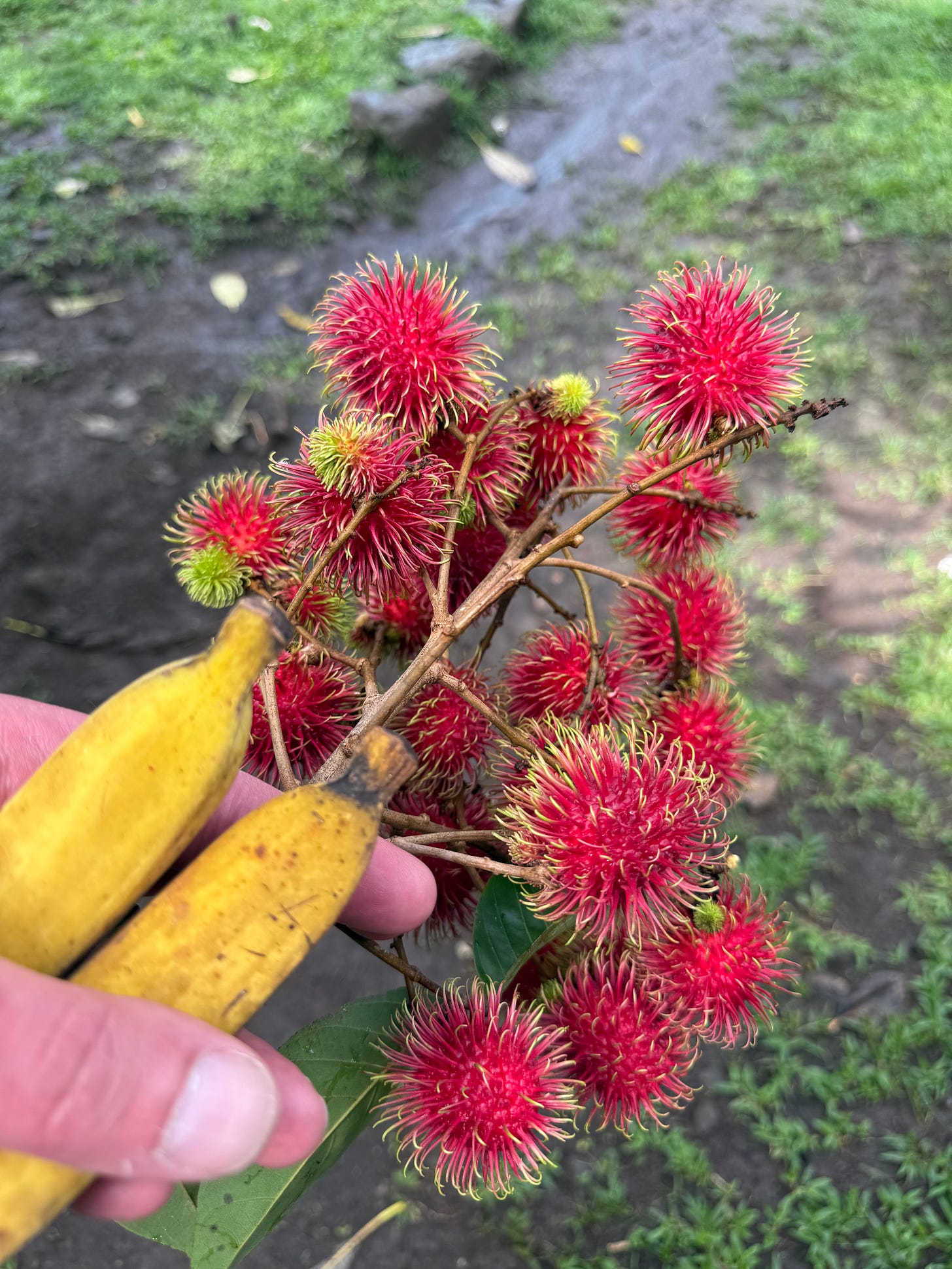
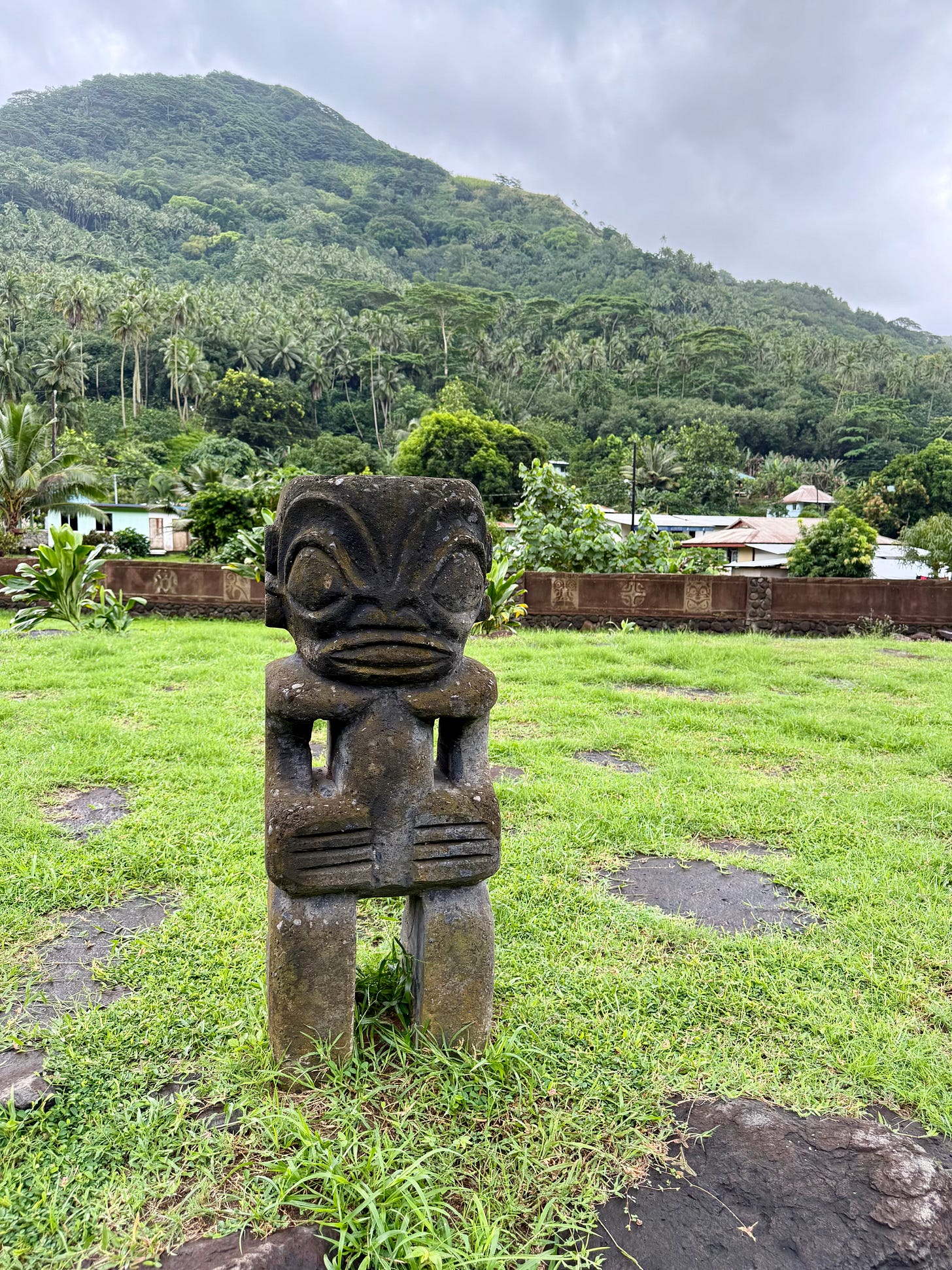
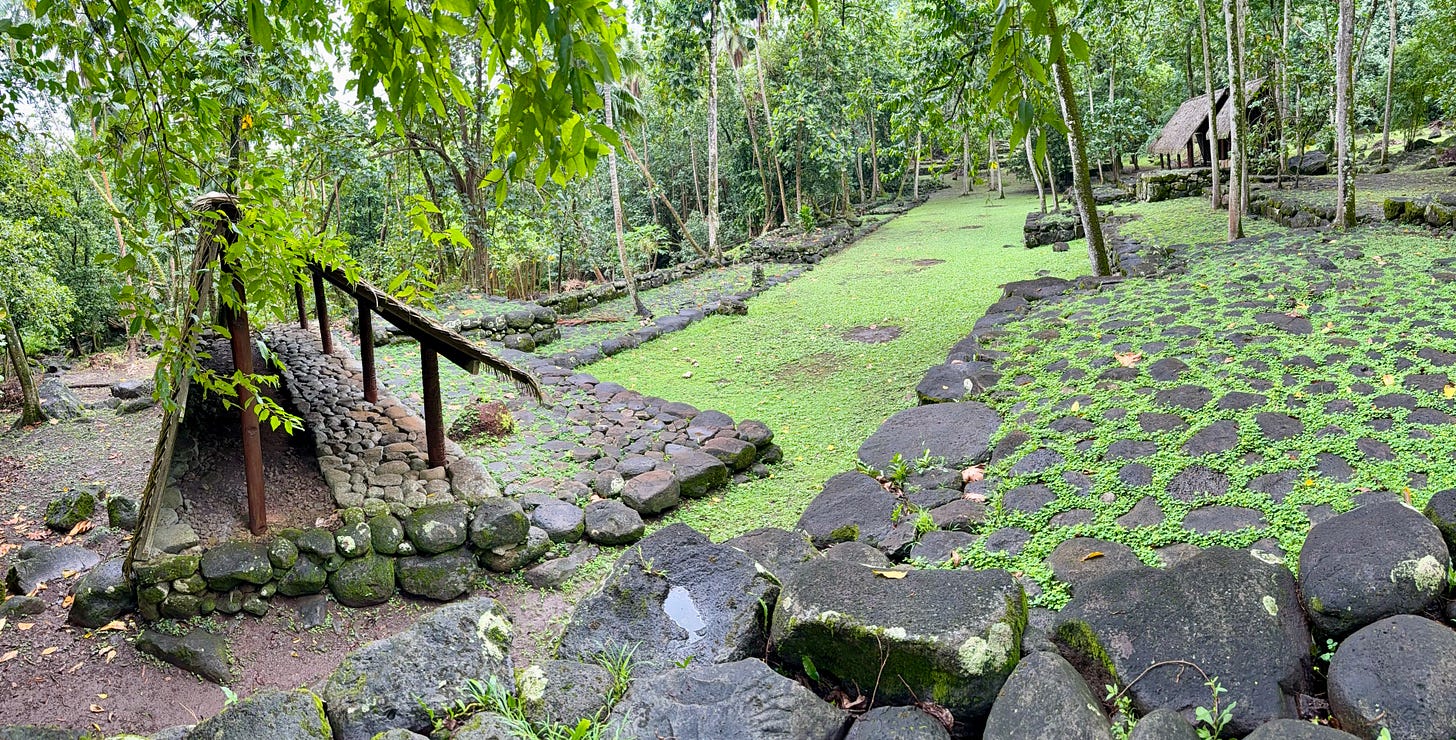
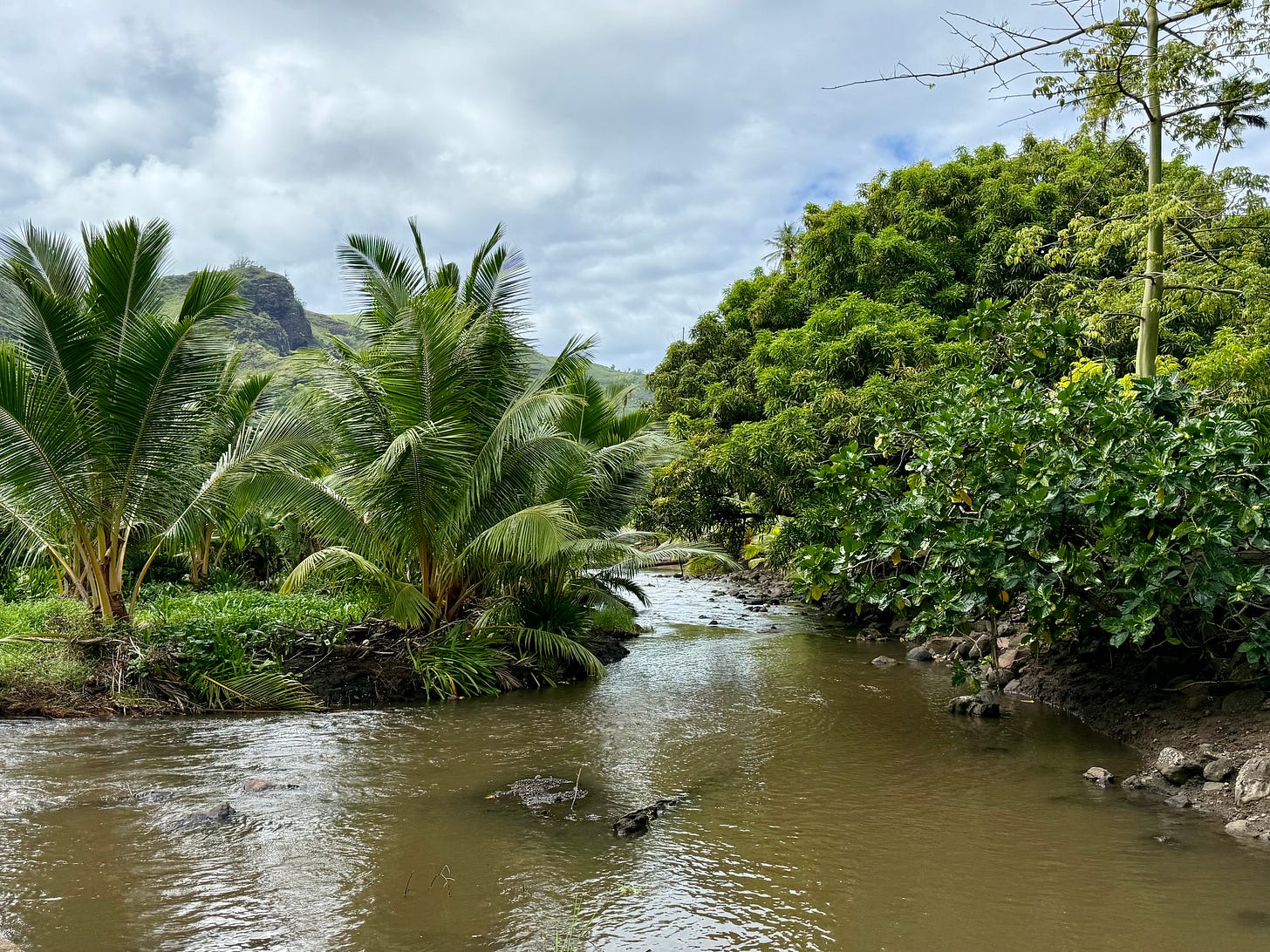

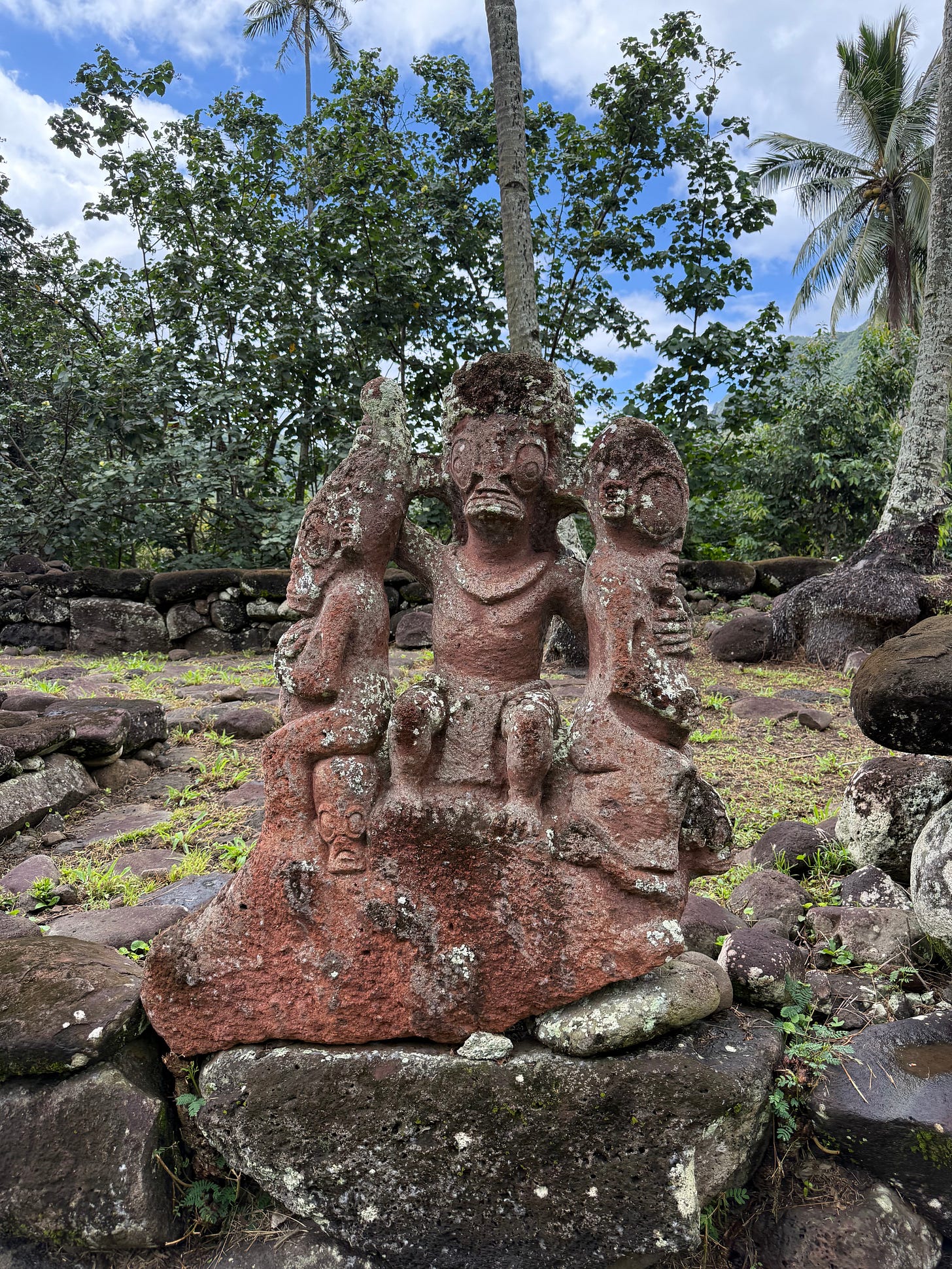
I'm tempted. Very.
Lovely story!